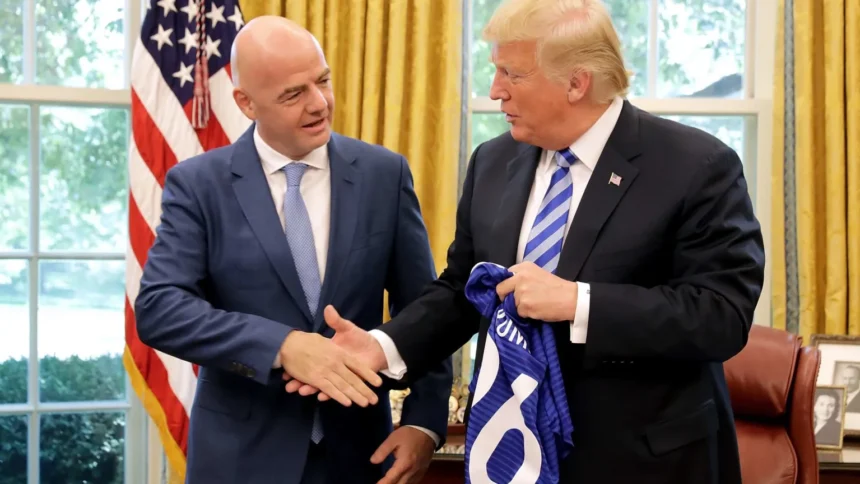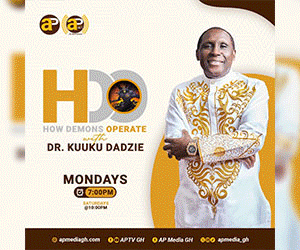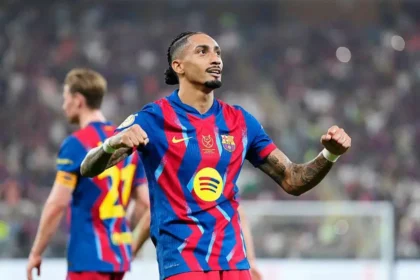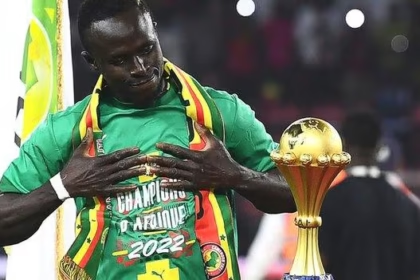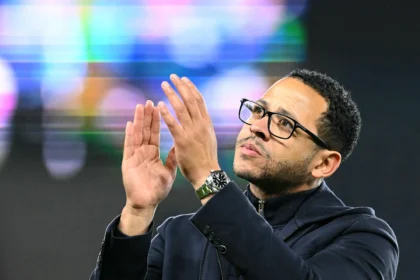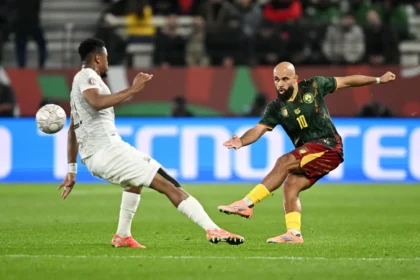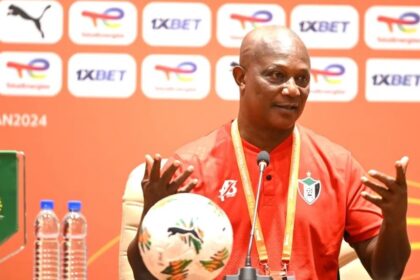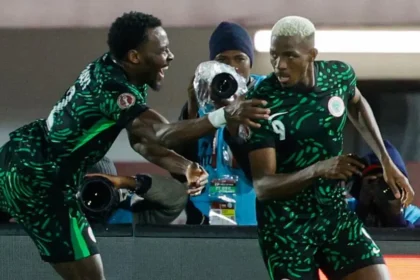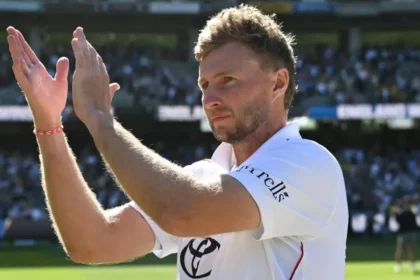FIFA President Gianni Infantino is under renewed pressure as calls intensify for a formal ethics investigation following his public endorsement of U.S. President Donald Trump’s political agenda. The move has sparked widespread alarm over FIFA’s commitment to political neutrality and deepened global concerns about the integrity of the 2026 World Cup. Additional political entanglements—including the launch of a new FIFA Peace Prize—have only escalated the controversy.
Infantino’s remarks at the America Business Forum in Miami, where he praised the U.S. president’s program as “looking pretty good” and urged the public to “support what he’s doing,” triggered immediate backlash. Such comments appear to stand in direct opposition to FIFA’s neutrality rules, placing the organization’s leader in direct conflict with its ethical framework.
Neutrality in Question as Ethics Calls Mount
Former FIFA Governance Committee Chairman Miguel Maduro has cited Article 15 of the FIFA Code of Ethics—requiring strict political neutrality—and called Infantino’s endorsement a “clear violation.” Maduro argues that while acknowledging an election result is appropriate, actively urging support for a partisan political platform crosses a crucial ethical boundary.
Despite rising pressure, the FIFA Ethics Committee has not announced any preliminary investigation, maintaining public silence on the matter.
Infantino has defended his comments by framing them as respect for democratic outcomes. However, critics say his assertion that “we should all support what he’s doing” goes far beyond that, amounting to political advocacy. UEFA has also criticized Infantino in the past for behavior perceived to align FIFA with private political interests, highlighting what it sees as a troubling pattern.
The controversy is further fueled by Infantino’s previous statements stressing the need to safeguard political neutrality in a world he described as “increasingly aggressive and divided,” making the current contradiction especially stark.
A Pattern of Alignment and Growing Internal Discontent
The endorsement is not an isolated incident. It follows years of publicly warm relations between Infantino and the U.S. president, including multiple White House visits, attendance at the inauguration, and repeated praise referring to the leader as a “great friend” and “phenomenal.” Critics argue that these gestures collectively compromise FIFA’s impartiality.
Global players’ union FIFPRO has condemned Infantino’s leadership style, accusing him of prioritizing profit, centralizing power, and fostering an environment “without dialogue, sensitivity, and respect.” The union’s dissatisfaction highlights broader unease within football’s governance structures, far beyond the current political dispute.
New FIFA Peace Prize Deepens Concerns
Controversy intensified with the announcement of the “FIFA Peace Prize – Football Unites the World,” set to debut during the World Cup Final Draw on December 5 in Washington, D.C. Infantino has refused to rule out awarding the inaugural prize to the U.S. president—an act critics say would cement the perception of political alignment and further erode neutrality.
Even more troubling is the potential influence on World Cup sovereignty. The U.S. president recently suggested that Infantino would support relocating matches if he deemed host cities unsafe.
Victor Montagliani, FIFA vice president and CONCACAF president, quickly pushed back, emphasizing that “FIFA makes those decisions,” and reminding the public that “football is bigger than any individual and bigger than any country.” His remarks underscore internal concern over the perception that FIFA’s leadership could be swayed by political alliances.
Global Reaction and Implications for the 2026 World Cup
The timing of the scandal, arriving months before the 2026 World Cup, is particularly sensitive. The event depends on maintaining a sense of international unity, and Infantino’s comments threaten to polarize fans and delegations from countries opposed to the U.S. president’s policies.
The controversy has already generated local and international reactions. Boston Mayor Michelle Wu publicly rejected comments casting doubt on her city’s safety, while Norway’s national team coach Ståle Solbakken lamented that “when the head of the sport creates political news, it distracts from the game itself—and that is a failure of leadership.”
As calls grow for decisive action, many argue that FIFA must urgently reaffirm its political neutrality to preserve public trust and ensure its president represents the interests of all 211 member associations—not those of any particular political figure.




